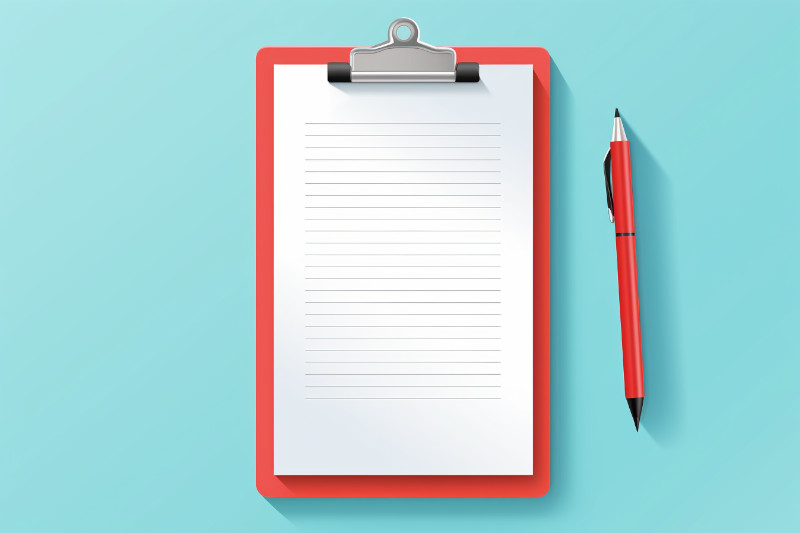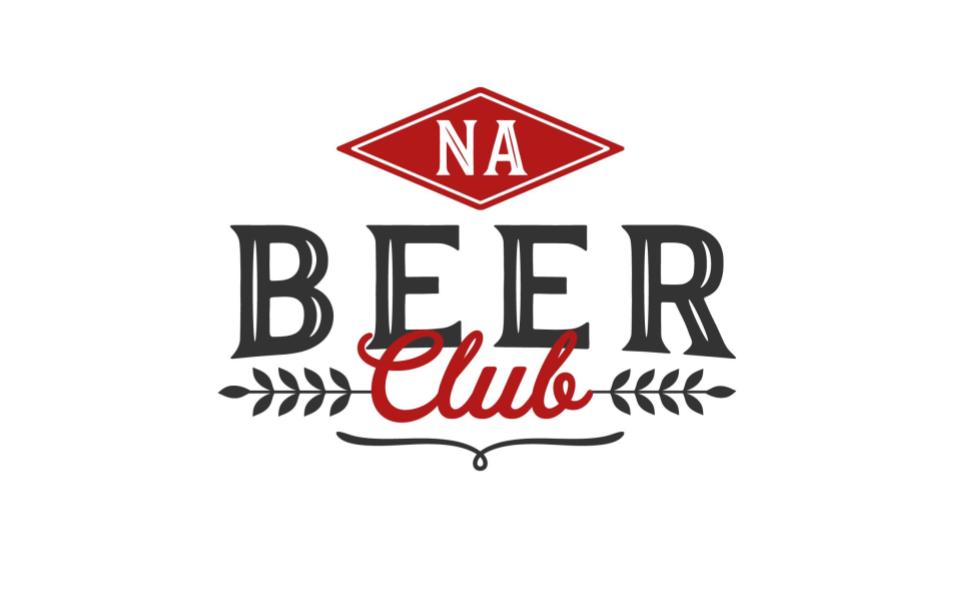Are you curious about participating in Sober October? The challenge can be rewarding and even life-changing for some. But do you know all the rules? We put this guide together to help you understand the Sober October Rules and some tips on how to be successful when following them.
Introduction to Sober October
What is Sober October?
Sober October is an annual challenge where participants voluntarily abstain from alcohol for the entire month of October.
Originally gaining traction in the UK, the movement has since spread globally, with countless individuals taking part each year.
The aim is simple: to give your body a break, reset your relationship with alcohol, and potentially discover the numerous benefits that come from a temporary pause in drinking.
While the primary focus is on abstaining from alcohol, many participants also choose to cut out other substances or habits, tailoring the challenge to best suit their personal health and wellness goals.
Why do people participate in Sober October?
The motivations for taking on the Sober October challenge are as varied as the participants themselves.
No, you don’t have to be an alcoholic, or even feel like you struggle with dependency, to participate. Many people find the month beneficial and take part in Sober October.
Here are a few common reasons people participate in Sober October:
- Health Benefits: Alcohol, even when consumed in moderation, can have adverse effects on the body. A month without it can lead to improved sleep, better digestion, clearer skin, and even weight loss for some.
- Mental Clarity: Many participants report feeling sharper, more alert, and more present during their sober month, highlighting the often-underestimated cognitive effects of alcohol.
- Emotional Reset: Taking a break from alcohol can offer a chance to reflect on one’s relationship with drinking, providing insights into patterns, triggers, and emotional dependencies.
- Financial Savings: Cutting out those regular trips to the bar or liquor store can lead to significant savings by the end of the month.
- Challenge and Personal Growth: For some, Sober October is a test of willpower and self-discipline, offering an opportunity for personal growth and self-discovery.
- Supporting a Cause: In some regions, participants raise money for charity during Sober October, turning their personal challenge into a broader philanthropic endeavor.
Regardless of the reasons, Sober October presents an opportunity to pause, reflect, and make conscious choices about our habits, making it a rewarding experience for many who take the plunge.
The Core Sober October Rules
The foundation of Sober October is built on a set of guiding principles, designed to encourage participants to prioritize their health and well-being. Below are the central rules that define the challenge:
- No Alcohol for 31 Days: This is the primary rule of Sober October. From the 1st to the 31st of October, participants commit to not consuming any alcoholic beverages. This means avoiding beers, wines, spirits, and any other drinks that can cause alcohol intoxication.
- No Consuming Other Intoxicating Substances (Optional): While the main focus is on alcohol, some participants choose to go a step further by also abstaining from other substances, such as recreational drugs like marijuana or nicotine. Some even go so far as abstaining from coffee or sexual impulses. This is a personal choice and is not a requirement for Sober October.
- Avoid Temptation: The most difficult part about Sober October is the temptation. It’s a surprise to many that it’s not avoiding alcohol that’s the difficult part, it’s avoiding the situations that alcohol is present. This might mean steering clear of bars, parties, or other social events where alcohol is the main attraction. Many have found avoiding these things to be important, while others still participate in these events, but substitute alcoholic drinks for non-alcoholic alternatives, like soda, seltzers, or more enjoyably, non-alcoholic beer.
- Reflect Regularly: Use this month to self-reflect. Think about your typical drinking habits, how you feel without alcohol, and any changes you might want to implement after October ends. It’s important that you note the positive effects that you feel throughout the month and think about how you may be able to continue that trend throughout the rest of the year. Remember, you won’t feel the positive effects right away, it will take some time for your mind and body to adjust to new habits.
It’s essential to remember that Sober October is a personal journey, and everyone’s experience will be unique. While the core rule revolves around complete abstinence from alcohol, some individuals choose to use the month as an opportunity to significantly cut back, rather than abstain entirely. This might mean setting personal limits, like only drinking on weekends or limiting oneself to a certain number of drinks per week. The key is to make a conscious effort to reduce alcohol consumption, understanding your motivations, and setting boundaries that challenge but don’t overwhelm you.

Benefits of Adhering to Sober October Rules
Embracing the Sober October challenge can yield a plethora of benefits, both tangible and intangible.
To elaborate on the benefits of Sober October listed above, we’ve provided more detailed information on how adhering to the rules of Sober October can tremendously help you.
While everyone’s experience will be unique, many participants have reported the following advantages:
1. Physical Health Improvements:
- Better Sleep: Alcohol can disrupt the REM cycle, leading to poor sleep quality. Without it, many people find they sleep more soundly and wake up feeling more refreshed.
- Improved Digestion: Alcohol can irritate the stomach lining, leading to digestive issues. A break can help alleviate heartburn, bloating, and other related symptoms.
- Clearer Skin: Alcohol dehydrates the skin and can lead to breakouts. A month without drinking often results in a clearer and more hydrated complexion.
- Weight Management: Alcoholic drinks are often calorie-dense. By cutting them out, participants might notice weight loss or easier weight management.
2. Mental and Emotional Well-being:
- Enhanced Clarity and Focus: Without the fog of alcohol, many participants report improved concentration, better memory recall, and heightened mental clarity.
- Emotional Stability: Alcohol can amplify emotions and mood swings. Abstaining can lead to more stable and predictable emotional responses.
- Reduced Anxiety and Depression: For some, alcohol exacerbates feelings of anxiety and depression. A break can help in alleviating these symptoms, although it’s essential to consult a professional if these feelings persist.
3. Financial Benefits:
- Cost Savings: Regularly purchasing alcohol, especially in social settings like bars or restaurants, can add up. Participants often report significant savings after a month without drinking.
4. Strengthened Relationships:
- Quality Time: Without the influence of alcohol, interactions with loved ones can become more meaningful. Many participants find they have more genuine, deep conversations and can connect on a more profound level.
- Reliability: Without the unpredictability that sometimes accompanies drinking, participants often find they’re more reliable and present for friends and family.
5. Personal Growth:
- Self-Discovery: The challenge provides an opportunity to reflect on personal habits, triggers, and the role alcohol plays in one’s life. This period of introspection can lead to significant self-awareness and personal growth.
- Boosted Confidence: Successfully adhering to the Sober October rules can instill a sense of accomplishment and boost self-esteem.
While these benefits are commonly reported, it’s essential to remember that everyone’s journey with Sober October is personal. Some participants might experience all of these benefits, while others might notice just a few. Regardless, even a short break from alcohol can provide valuable insights and highlight the positive impacts of reduced consumption on overall well-being.
Challenges When Participating in Sober October
Every journey has its obstacles, and Sober October is no exception. While the benefits of participating are numerous, it’s essential to acknowledge the potential challenges that might arise and equip oneself with strategies to navigate them successfully.
1. Social Pressure:
- Challenge: Social events, gatherings, and celebrations often revolve around alcohol. The fear of missing out or being the ‘odd one out’ can be daunting.
- Solution: Communicate your commitment to Sober October with friends and family. Giving up drinking doesn’t mean giving up your social life. Opt for non-alcoholic beverages, and remember, you can still have fun without alcohol. If a situation feels too challenging, consider bringing along a supportive friend or even opting out of certain events for the month.
2. Physical Cravings:
- Challenge: Depending on one’s regular consumption, the body might physically crave alcohol, especially in the early days.
- Solution: Stay hydrated, and consider trying non-alcoholic alternatives. Sparkling water, mocktails, or non-alcoholic beer can provide a satisfying replacement and huge benefits. If cravings are intense or prolonged, it might be helpful to seek support from a professional or a support group.
3. Emotional Triggers:
- Challenge: Many people use alcohol as a coping mechanism for stress, sadness, or other emotions. Without it, these feelings might feel more intense.
- Solution: Engage in alternative coping strategies like exercise, meditation, journaling, or talking to someone you trust. Recognize and address the root cause of the emotion rather than seeking temporary relief through alcohol.
4. Boredom:
- Challenge: If drinking was a primary leisure activity, the sudden void can lead to feelings of boredom or restlessness.
- Solution: Use this month to explore new hobbies or revisit old ones. Whether it’s reading, hiking, joining a class, or starting a new project, Sober October is a perfect time to diversify your interests.
5. Doubt and Lack of Motivation:
- Challenge: As the month progresses, the initial enthusiasm might wane, leading to doubts about the purpose or benefits of the challenge.
- Solution: Regularly reflect on your reasons for participating. Celebrate small milestones, and consider joining online communities or groups that support Sober October. Surrounding yourself with encouragement can reignite your motivation.
6. Dealing with Questions and Curiosity:
- Challenge: Others might be curious or even skeptical about your choice to participate in Sober October, leading to uncomfortable conversations.
- Solution: Prepare a concise explanation about why you’ve chosen to take on the challenge. Most people will respect your decision once they understand your reasons.
While these challenges might seem daunting, with preparation and determination, they are surmountable. Remember, the essence of Sober October is personal growth and self-awareness. Facing and overcoming these obstacles is an integral part of the journey, ultimately leading to a more enriching experience.
Frequently Asked Questions about Sober October Rules
As with any popular challenge or movement, Sober October comes with its own set of questions that participants and observers frequently ask. Here, we address some of the most common inquiries to provide clarity and guidance.
1. Can I have a cheat day?
- Answer: The core rule of Sober October is to abstain from alcohol for the entire 31 days. However, it’s essential to remember that this challenge is personal. If you have a significant event during October and choose to drink, it’s vital to reflect on the experience and continue with the challenge the next day. The goal is personal growth and awareness, not perfection.
2. What if I accidentally break the rules?
- Answer: Mistakes happen. If you inadvertently consume alcohol, don’t be too hard on yourself. Acknowledge the slip, reflect on the circumstances that led to it, and recommit to the challenge. The journey and the lessons learned are more important than strict adherence.
3. How do I handle cravings?
- Answer: Cravings can be challenging, especially in the early days. It’s helpful to have a plan in place: keep non-alcoholic beverages on hand, engage in a distracting activity, or talk to someone supportive. If cravings are intense, consider seeking professional support.
4. Can I drink non-alcoholic beer during Sober October?
- Answer: Yes, non-alcoholic beer is generally considered acceptable during Sober October since it contains little to no alcohol (typically less than 0.5% ABV). However, be mindful of your reasons for participating. For some, non-alcoholic beer is an amazing substitute, while for others, it could trigger cravings or feelings associated with regular beer. It’s essential to make choices that align with your personal goals and challenges.
5. Do I need to avoid foods cooked with alcohol?
- Answer: Most of the alcohol in foods cooked or baked with it burns off during the cooking process. However, to stay true to the spirit of Sober October, some participants choose to avoid such dishes. It’s a personal decision, but if you’re aiming for complete abstinence, it’s wise to inquire about ingredients when dining out.
6. Can I participate if I don’t drink much to begin with?
- Answer: Absolutely! Sober October isn’t just for regular drinkers. It’s an opportunity for everyone to reflect on their habits, make conscious choices, and prioritize health. If alcohol isn’t a challenge for you, consider other modifications, such as cutting out sugar or caffeine, to tailor the month to your personal growth goals.

How Can I Get Ready for Sober October to Ensure I Follow the Rules?
Preparing for Sober October is just as crucial as the challenge itself. Setting yourself up for success means proactively addressing potential obstacles and creating a supportive environment. Here are some steps to help you gear up for a fulfilling and successful month:
1. Make a Plan and Communicate It:
- What to do: Outline your personal goals and reasons for participating in Sober October. Are you aiming for complete abstinence, or do you have specific rules tailored for yourself?
- Why it helps: By having a clear plan, you can more easily navigate challenges. Sharing your intentions with friends and family can garner support and ensure they respect and understand your choices. They can also serve as accountability partners, reminding you of your commitment when faced with temptation.
2. Remove Alcoholic Drinks from Your House:
- What to do: In September, gradually consume or give away any alcoholic beverages in your home. By October 1st, aim to have a house free of alcohol.
- Why it helps: Out of sight, out of mind. Removing alcohol reduces the risk of impulsive decisions and helps create a temptation-free zone.
3. Stock Up on Non-Alcoholic Alternatives:
- What to do: Explore the world of non-alcoholic beverages. There are numerous tasty options available, from mocktails to NA beers. Consider signing up for a monthly subscription of a variety of non-alcoholic beers from NA Beer Club. They offer a curated selection of non-alcoholic beers, allowing you to discover your favorites before October begins. You can sign up for just 1-month or more if you want to keep the momentum going.
- Why it helps: Having enjoyable alternatives on hand ensures you don’t feel deprived. It can make social situations easier to navigate and provide a satisfying replacement for your usual drink.
4. Plan Alcohol-Free Activities:
- What to do: Fill your October calendar with activities that don’t revolve around drinking. Here are some ideas:
- Outdoor Activities: Hiking, biking, or even long walks in your local park.
- Classes: Join a cooking class, learn a new instrument, or try out a dance class.
- Arts and Crafts: Dive into DIY projects, painting, or pottery.
- Reading: Start a book club or set a reading goal for the month.
- Sports: Join a local sports league or try out a new sport.
- Wellness: Explore yoga, meditation, or attend wellness workshops.
- Why it helps: Keeping busy with fulfilling activities diverts attention from alcohol and reduces potential moments of boredom, which can be triggers for some. Engaging in new experiences can also enhance the rewards of the month, making it a period of growth and discovery.
By taking these proactive steps, you’ll be better equipped to face the challenges of Sober October head-on. Preparation is the key to success, and by creating a supportive environment, you’ll be setting yourself up for a rewarding and transformative experience.
Embracing the Spirit of Sober October
Sober October isn’t just about abstaining from alcohol; it’s about self-discovery, growth, and making conscious choices that prioritize our well-being.
It’s an opportunity to reflect on our habits, challenge ourselves, and perhaps even inspire others along the way. A great way to inspire others to participate in Sober October is with a gift — a non-alcoholic beer gift. Gifting non-alcoholic beer lets the beer-drinking in your life have a taste of sobriety without sacrificing the taste of beer.
By understanding the rules, recognizing the potential benefits, and preparing adequately, participants set themselves up for a month filled with insights, achievements, and personal transformations. And remember, whether you achieve complete abstinence or make significant strides in reducing your alcohol consumption, every step taken during Sober October is a step towards better health, clarity, and self-awareness.
We hope this comprehensive guide has provided you with the knowledge, motivation, and tools to embark on a successful Sober October journey. May your experience be enlightening, rewarding, and pave the way for even more conscious choices in the months and years to come.

